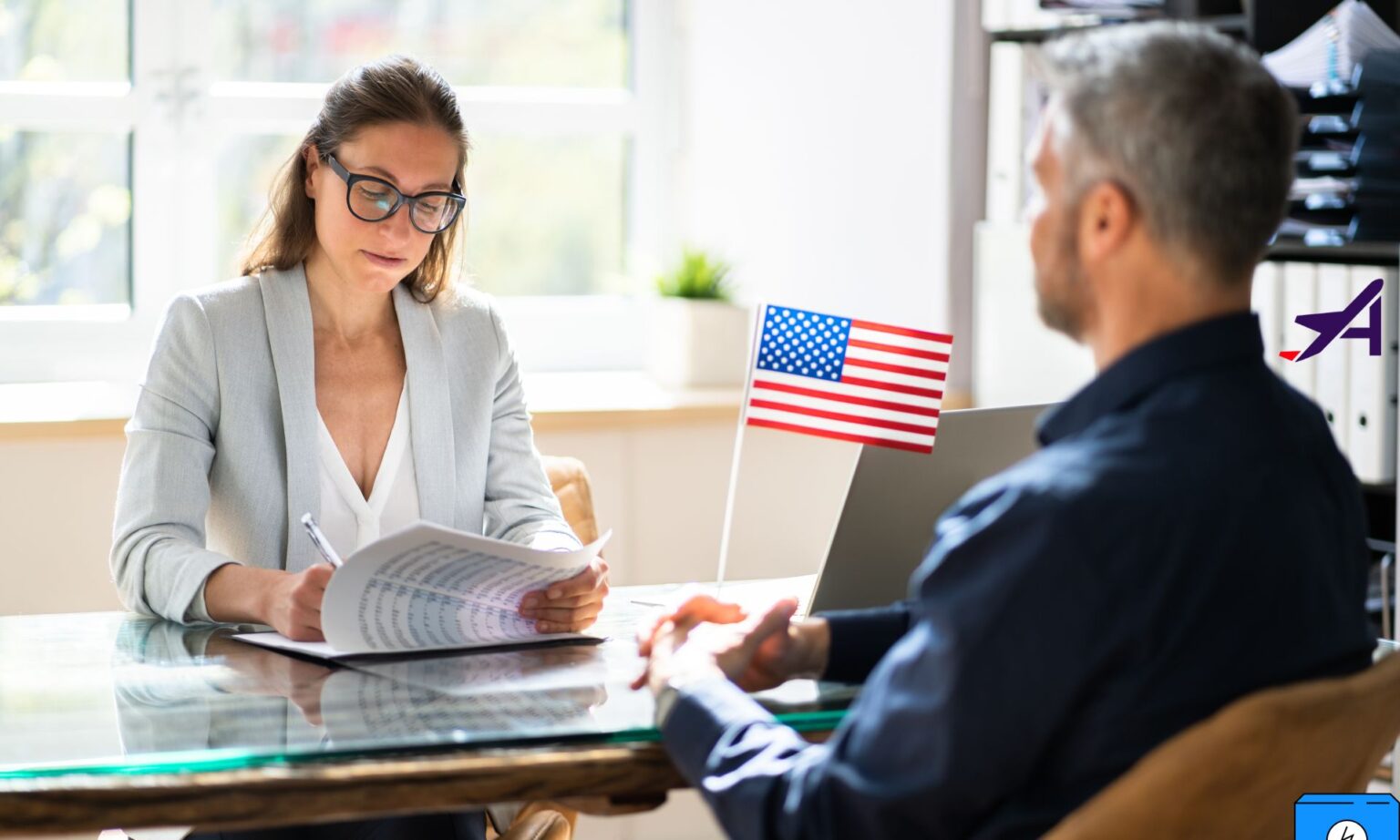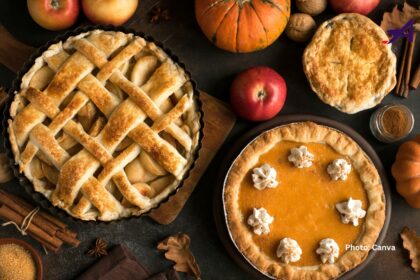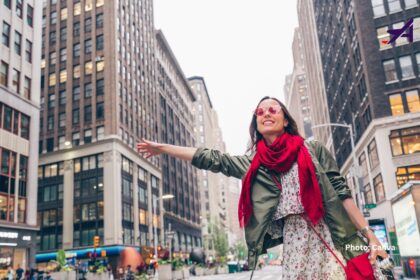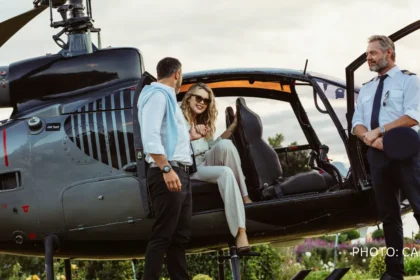Applying for a U.S. visa can be a daunting experience, especially when it comes to the interview. It’s the final hurdle that can make or break your travel plans. While it might seem intimidating, proper preparation and a good understanding of the process can significantly increase your chances of success. This guide will provide you with essential tips to help you navigate the U.S. visa interview with confidence.
Understanding the U.S. Visa Interview Process
What is a Visa Interview?
A U.S. visa interview is a personal meeting with a consular officer who will evaluate your application and determine if you meet the eligibility criteria for the visa. The purpose is to verify the information provided in your application and assess your intentions for traveling to the U.S.
Types of U.S. Visas That Require Interviews
Most visa categories require an interview, including tourist (B1/B2), student (F-1), and work visas (H-1B). However, there are some exceptions, such as children under 14 or adults over 79, who may not need an interview.
Who Needs to Attend an Interview?
Generally, first-time visa applicants, as well as those whose visas have expired, need to attend an interview. Certain repeat applicants may be eligible for an interview waiver.
Common Reasons for Visa Interview Rejection
Lack of Sufficient Documentation
Inadequate paperwork can quickly lead to a rejection. Make sure you have all necessary documents, including financial records, invitation letters, and any required forms.
Inconsistent Answers
If your answers during the interview don’t align with the information on your application, it may raise red flags. Always be consistent and truthful.
Inability to Demonstrate Ties to Your Home Country
Consular officers need to see that you have compelling reasons to return to your home country, such as family, work, or property. Failing to demonstrate these ties can lead to a visa denial.
Preparing for Your U.S. Visa Interview
Gathering Essential Documents
Ensure you have all required documents, including a valid passport, visa fee receipt, DS-160 confirmation page, appointment confirmation, and supporting documents related to your visa type.
Filling Out the DS-160 Form Correctly
The DS-160 form is crucial as it contains your personal information and travel details. Double-check all information to avoid mistakes.
Booking the Visa Appointment
Once your documents are ready, schedule your appointment at the nearest U.S. embassy or consulate. Make sure to choose a date that allows enough time for preparation.
Understanding the DS-160 Form
What is the DS-160 Form?
The DS-160 is an online application form required for most nonimmigrant U.S. visas. It provides the consular officer with essential details about your background and travel plans.
Common Mistakes to Avoid
Errors on the DS-160 can delay the process or even result in a denial. Avoid common mistakes like misspellings, incorrect dates, or inaccurate information about previous travel.
How to Review and Verify Your Information
Always review your answers before submission. It’s helpful to have someone else look over your form to catch any errors you might have missed.
What to Expect on the Day of the Interview
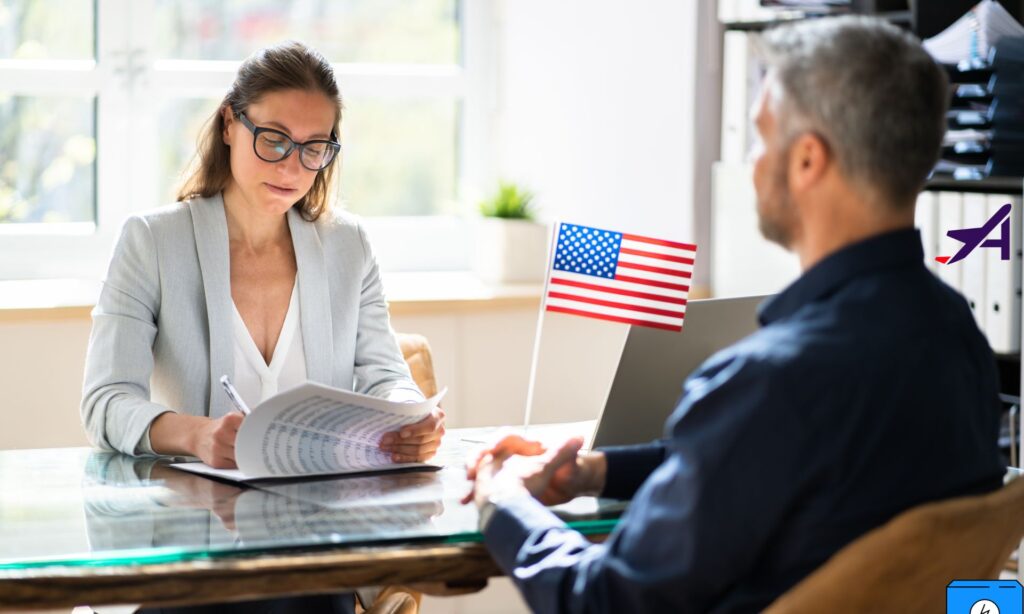
Arrival Time and Security Checks
Arrive early to accommodate security checks. Electronic devices are typically not allowed inside the embassy, so plan accordingly.
Procedures Before Meeting the Consular Officer
You’ll go through various checks, such as fingerprinting and document verification, before your interview.
What Happens During the Interview?
The consular officer will ask about your travel plans, finances, and ties to your home country. Be concise and honest with your responses.
How to Dress for a U.S. Visa Interview
The Importance of Dressing Professionally
Your appearance can make a strong impression. Dress neatly and avoid casual attire.
Appropriate Attire Suggestions
Opt for business or business casual attire. For men, a button-down shirt and slacks work well, while women can choose a dress or a blouse with a skirt.
Common Dress Code Mistakes to Avoid
Avoid wearing overly casual or flashy clothes. Remember, you want to present yourself as someone who takes the process seriously.
Frequently Asked Questions During U.S. Visa Interviews
Questions About Travel Plans
You may be asked why you’re traveling to the U.S., where you’ll stay, and how long you’ll be there. Be clear about your itinerary.
Employment-Related Queries
Consular officers might ask about your current job and future career plans. If you’re applying for a work visa, be prepared to discuss your employment details.
Family Ties and Home Country Connections
Questions about family, property, or business ownership in your home country are common. These help demonstrate that you intend to return.
READ ALSO: 5 Best Corporate Meeting Venues in the USA
Tips for Answering Questions Confidently
The Importance of Honesty
Always provide truthful answers, even if they seem less favorable. Dishonesty can lead to a permanent visa ban.
How to Avoid Over-Explaining
Answer the questions directly without giving too much extra information. Let the consular officer ask follow-up questions if necessary.
Techniques for Staying Calm and Collected
Take deep breaths, maintain eye contact, and speak slowly. These techniques can help you stay composed during the interview.
Dealing with Nervousness
Relaxation Techniques Before the Interview
Practice deep breathing exercises or meditation before your appointment to stay calm.
Practicing Mock Interviews
Rehearse potential questions with a friend to build confidence.
Positive Visualization
Visualize a successful interview to help reduce anxiety and increase confidence.
Highlighting Your Ties to Your Home Country
Why It’s Important for Visa Approval
Showing strong connections to your home country reassures the consular officer that you’ll return after your visit.
How to Demonstrate Strong Connections
Provide documents like employment letters, property deeds, or school enrollment certificates.
Documents That Can Help Establish Ties
Present financial records, family documents, and other evidence that highlights your commitment to returning.
Handling Tough Questions
Questions About Financial Stability
Show proof of funds that cover your U.S. trip expenses, like bank statements or sponsorship letters.
Addressing Previous Visa Denials
Be prepared to explain why your previous application was denied and how you’ve addressed any issues.
Clarifying Ambiguous Situations
If asked about complex situations, such as long gaps in employment, give a concise and truthful explanation.
Bringing the Right Documentation
Checklist of Must-Have Documents
Bring your passport, appointment confirmation, visa application fee receipt, DS-160 form, and any supporting documents.
Organizing Your Paperwork for Easy Access
Arrange your documents in a logical order to make it easy to find the required papers during the interview.
What to Do if a Document is Missing
If you realize a document is missing, explain the situation to the consular officer calmly.
Understanding Your Rights During the Interview
Knowing What the Consular Officer Can and Cannot Ask
You have the right to refuse questions that feel inappropriate or invasive.
Handling Unfair or Inappropriate Questions
Politely declined to answer any questions that feel unrelated to the visa process.
Your Rights if Your Visa is Denied
If your visa is denied, you can ask for the reason and guidance on reapplying.
After the Interview: What Happens Next?
Understanding Visa Issuance or Denial Notices
The consular officer will inform you of the decision at the end of the interview.
Administrative Processing
In some cases, your application may need further administrative processing, which could delay the decision.
How to Track Your Visa Status
Use the embassy or consulate’s online system to check the status of your application.
Dealing with Visa Denials and Reapplications
Common Reasons for Denial
Understanding why your application was denied can help you prepare for a future attempt.
How to Address Issues in a New Application
Correct any problems from the previous application, such as submitting additional documents or clarifying inconsistencies.
Appealing a Visa Decision
While there’s no formal appeal process, you can apply for a new interview and address previous concerns.
Conclusion
Preparing for a U.S. visa interview can be challenging, but with the right approach, you can improve your chances of success. Remember to be honest, stay calm, and provide all necessary documentation. Good luck with your application!
FAQs
- How long does a U.S. visa interview take?
Typically, the interview lasts around 5-10 minutes, but the entire process at the embassy can take longer. - Can I bring someone with me to the interview?
No, except in cases where a translator is required or for applicants who need assistance due to a disability. - What happens if I miss my interview appointment?
You’ll need to reschedule through the embassy’s appointment system. - Do I need to speak English during the interview?
It’s not mandatory, as consular officers can usually arrange a translator. - How soon can I reapply if my visa is denied?
You can reapply at any time, but it’s advisable to address the reasons for the denial before doing so.
In another related article, 5 Best Business Travel Management Companies in the USA


